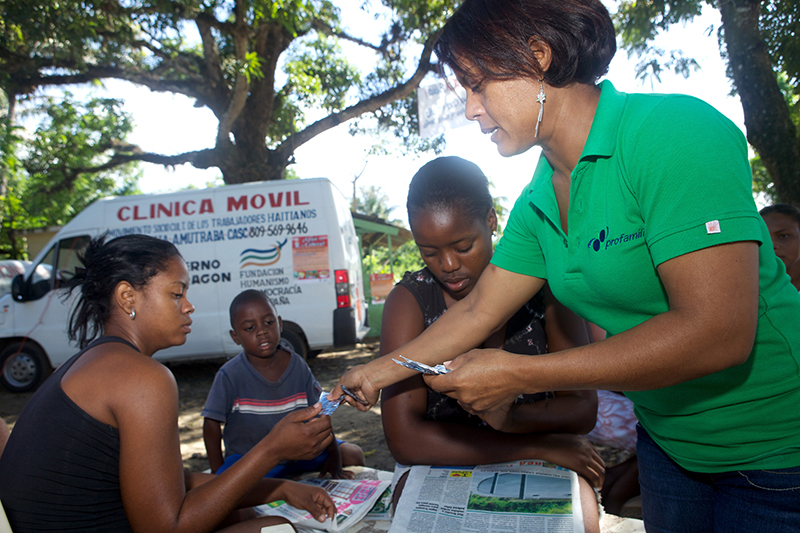Mobile health units bring health services to rural women in the Dominican Republic.
Why we care: Women living in isolated communities in the Dominican Republic have little to no access to family planning services and basic health care.
How we’re solving this: Our mobile health unit will make 32 visits to 25 rural communities in the Dominican Republic to provide women with critical health information and services.
“If this project did not exist, there would be more women with cancer, more pregnant teenagers, more people with HIV.”
Leona Adolfo has worked as a nurse in Profamilia’s mobile health unit for more than three years. She travels to isolated communities throughout the Dominican Republic to ensure the most vulnerable have access to health care. In Abacao Batey, a community of mostly Haitian immigrants, more than 400 people live in wooden shacks without latrines.
“There are women here who are 18 years old and already have three kids, says Leona. “They don’t go to school or have a job. There are many cases of teenage pregnancy and violence.”
Mobile health units like Leona’s are crucial to reaching overlooked populations and providing them with quality care. They travel long distances on makeshift roads because they know people are waiting for them who cannot access a health care facility. Distance aside, many Haitian immigrants in the Dominican Republic can’t receive basic medical care or treatment even in the case of extreme emergency.
As the leading nonprofit organization providing sexual and reproductive health services in the country, our local partner Profamilia is trusted by women for family planning services, reproductive health care, and counseling. Last year alone, the organization provided over 669,000 services – many of them for free to members of the community of Abacao.
“White, poor, rich, Dominican, Haitian, Haitian-Dominican, we are all human beings,” says Leona. “[At Profamilia,] everyone is treated in the same way.”
Your support will provide 32 mobile health visits to 25 communities in the provinces of Monte Plata, San Cristobal, and Santo Domingo in the Dominican Republic. The unit will provide sexual and reproductive health services – such as contraceptives, gynecological exams, and HIV testing – as well as educational workshops on topics like basic treatment for common infections, how to conduct a breast self-examination, violence prevention, and family planning.
Local leaders like Leona will also be trained as community health promoters to provide ongoing health education and empowerment activities.
Will you help lift the health burden from women in isolated communities?


